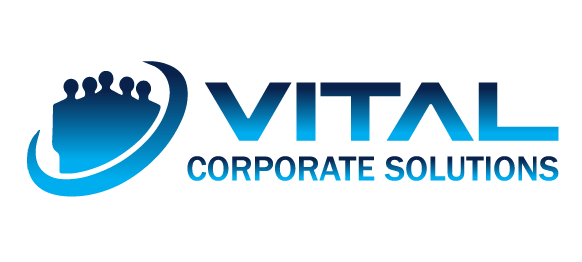What Is an Administrative Services Organization (ASO)?
Businesses may contract with an Administrative Services to handle specific administrative and human resource (HR) functions.
The employment connection and responsibilities are the key distinctions that set an apart from other employment services such as PEOs or Employee Leasing Organizations (ELOs). The client company continues to be the “employer of record” for tax and legal purposes when dealing with an Administrative Services This implies that the company maintains complete control over its workforce and all related legal obligations even when the ASO manages administrative duties.
ASOs assume administrative responsibilities without committing to a co-employment model, so the business maintains ownership of employee programs, its tax identification number, and its liability for compliance problems. In contrast, PEOs operate under a co-employment framework, while this autonomy does not exist.
Essential Services Served by an ASO
Payroll Support:
Administrative Services handle payroll processing, ensuring that employees are paid accurately and on time. They also manage tax deductions and filings, easing the burden on the company’s internal team.
Management of Incentives:
While the business is ultimately in charge of obtaining its benefit plans, an administrative organization can help with program administration and broker relations.They relieve the business of the responsibility of overseeing day-to-day operations by helping to ensure that employees receive the benefits to which they are legally entitled.
HR Administration:
ASO provide a comprehensive range of HR administrative support, from maintaining employee records to handling issues related to compliance and performance management.
Maintaining Regulatory
Compliance can be challenging for businesses, particularly in areas like employment law where laws and regulations are always changing. By decreasing the likelihood of penalties or legal problems, ASO aids in ensuring compliance.
Motivation for the Need for Administrative Services Organizations
An ASO’s ability to expand an organization’s HR department’s capabilities is what makes it so important. Businesses can reap numerous advantages by outsourcing these essential operations, such as increased productivity, decreased administrative workloads, and enhanced personnel management. Assisting companies in very complicated administrative and compliance domains such as healthcare might greatly benefit from collaborating with Administrative Services.
For small-to medium-sized clinics and healthcare facilities, balancing patient care with administrative duties is a common difficulty. By assigning administrative tasks like payroll, benefits administration, and regulatory compliance to a third party, healthcare practitioners can focus on delivering optimal patient care.
Comparing ASO with PEO: Recognizing the Differences
Professional Employer Organizations (PEOs) and ASOs both provide HR outsourcing services; the primary distinction between the two models is the degree of control and risk that each entails. decisive element for companies picking between an ASO and a PEO. Working under a co-employment paradigm, a PEO takes on the role of employer of record for certain aspects of employment, such as benefits and payroll.
The PEO and the company have certain legal obligations and liabilities because of this co-employment arrangement. The PEO manages benefits for employees, offers group health insurance, files taxes using its own federal identification number, and more.
On the other hand, when an ASO is used, the company is still in complete control of its personnel, including compliance and tax filing. Administrative Services provide administrative assistance; nevertheless, it bears no responsibility for the legal obligations or liabilities associated with employment.

When Should a Business Choose an ASO?
Benefits Administration:
Administrators assist in the management of benefit programs, but they neither supply nor finance the benefits. This means that the company must take on the responsibility of securing and funding benefits packages. However, ASOs can assist in interfacing with brokers and ensuring that the benefits are managed effectively.
HR Help:
Both ASOs and PEOs provide HR help, but Administrative Services offer a more hands-on administrative approach. They assist with day-to-day HR management duties like compliance and payroll, but higher-level strategic choices still need to be made by the company.
Pricing Considerations:
ASOs are often more economical than PEOs, especially for small firms, because the majority of ASO services charge a flat amount per person, which can be a more predictable and acceptable pricing structure than the percentage-based costs that some PEOs charge.
Risk management:
PEOs are a tempting option for businesses concerned about liability and compliance since they assume some of the financial and legal risks associated with hiring. This is one of their primary benefits. Administrative Services does not, however, allow
Conclusion: Is this ASO Right for your Business?

For Australian firms wishing to streamline their HR services without sacrificing control, an Administrative Services Organization (ASO) offers a personalized solution. Businesses can keep full legal responsibility for their employees while minimizing the administrative load by outsourcing services like compliance management, payroll, and benefits administration.
Small and medium-sized enterprises are especially drawn to administrative services because they seek to minimize expenses and stay away from the complications of a co-employment model. Even these administrative organizations might not provide the full range of services provided by PEOs, their affordability and adaptability make them a desirable substitute for businesses looking to expand without sacrificing control over their HR functions.
What Is an Administrative Services Organization (ASO)?
Businesses may contract with an Administrative Services to handle specific administrative and human resource (HR) functions.
The employment connection and responsibilities are the key distinctions that set an apart from other employment services such as PEOs or Employee Leasing Organizations (ELOs). The client company continues to be the “employer of record” for tax and legal purposes when dealing with an Administrative Services This implies that the company maintains complete control over its workforce and all related legal obligations even when the ASO manages administrative duties.
ASOs assume administrative responsibilities without committing to a co-employment model, so the business maintains ownership of employee programs, its tax identification number, and its liability for compliance problems. In contrast, PEOs operate under a co-employment framework, while this autonomy does not exist.
Essential Services Served by an ASO
Payroll Support:
Administrative Services handle payroll processing, ensuring that employees are paid accurately and on time. They also manage tax deductions and filings, easing the burden on the company’s internal team.
Management of Incentives:
While the business is ultimately in charge of obtaining its benefit plans, an administrative organization can help with program administration and broker relations.They relieve the business of the responsibility of overseeing day-to-day operations by helping to ensure that employees receive the benefits to which they are legally entitled.
HR Administration:
ASO provide a comprehensive range of HR administrative support, from maintaining employee records to handling issues related to compliance and performance management.
Maintaining Regulatory
Compliance can be challenging for businesses, particularly in areas like employment law where laws and regulations are always changing. By decreasing the likelihood of penalties or legal problems, ASO aids in ensuring compliance.
Motivation for the Need for Administrative Services Organizations
An ASO’s ability to expand an organization’s HR department’s capabilities is what makes it so important. Businesses can reap numerous advantages by outsourcing these essential operations, such as increased productivity, decreased administrative workloads, and enhanced personnel management. Assisting companies in very complicated administrative and compliance domains such as healthcare might greatly benefit from collaborating with Administrative Services.
For small-to medium-sized clinics and healthcare facilities, balancing patient care with administrative duties is a common difficulty. By assigning administrative tasks like payroll, benefits administration, and regulatory compliance to a third party, healthcare practitioners can focus on delivering optimal patient care.
Comparing ASO with PEO: Recognizing the Differences
Professional Employer Organizations (PEOs) and ASOs both provide HR outsourcing services; the primary distinction between the two models is the degree of control and risk that each entails. decisive element for companies picking between an ASO and a PEO. Working under a co-employment paradigm, a PEO takes on the role of employer of record for certain aspects of employment, such as benefits and payroll.
The PEO and the company have certain legal obligations and liabilities because of this co-employment arrangement. The PEO manages benefits for employees, offers group health insurance, files taxes using its own federal identification number, and more.
On the other hand, when an ASO is used, the company is still in complete control of its personnel, including compliance and tax filing. Administrative Services provide administrative assistance; nevertheless, it bears no responsibility for the legal obligations or liabilities associated with employment.

When Should a Business Choose an ASO?
Benefits Administration:
Administrators assist in the management of benefit programs, but they neither supply nor finance the benefits. This means that the company must take on the responsibility of securing and funding benefits packages. However, ASOs can assist in interfacing with brokers and ensuring that the benefits are managed effectively.
HR Help:
Both ASOs and PEOs provide HR help, but Administrative Services offer a more hands-on administrative approach. They assist with day-to-day HR management duties like compliance and payroll, but higher-level strategic choices still need to be made by the company.
Pricing Considerations:
ASOs are often more economical than PEOs, especially for small firms, because the majority of ASO services charge a flat amount per person, which can be a more predictable and acceptable pricing structure than the percentage-based costs that some PEOs charge.
Risk management:
PEOs are a tempting option for businesses concerned about liability and compliance since they assume some of the financial and legal risks associated with hiring. This is one of their primary benefits. Administrative Services does not, however, allow
Conclusion: Is this ASO Right for your Business?

For Australian firms wishing to streamline their HR services without sacrificing control, an Administrative Services Organization (ASO) offers a personalized solution. Businesses can keep full legal responsibility for their employees while minimizing the administrative load by outsourcing services like compliance management, payroll, and benefits administration.
Small and medium-sized enterprises are especially drawn to administrative services because they seek to minimize expenses and stay away from the complications of a co-employment model. Even these administrative organizations might not provide the full range of services provided by PEOs, their affordability and adaptability make them a desirable substitute for businesses looking to expand without sacrificing control over their HR functions.
Legal Document Management Services Australia-Wide
By Vital Corporation Solutions—Trusted Legal Experts in Nationwide Document Management
At Vital Corporation Solutions, we offer specialized document management services as part of our comprehensive legal support offerings, available across all of Australia. Our goal is to streamline how your legal documents are created, stored, accessed, secured, and disposed of—so you can focus on what truly matters.
What is document management in legal services?
Document management in the legal sector refers to the structured handling of all legal paperwork—both digital and physical—throughout its lifecycle. This includes the creation, classification, storage, retrieval, sharing, archiving, and secure destruction of legal documents.
Whether you’re a law firm, corporate legal department, or government body, document management ensures compliance with legal standards, protects sensitive information, and improves overall efficiency.


Why Do You Need Legal Document Management?
Legal cases involve high volumes of sensitive documents—contracts, client records, case files, deeds, and more. Without a secure, compliant system in place, your firm is exposed to risks like
- Data breaches
- Missed deadlines due to lost documents
- Non-compliance with regulatory obligations
- Inefficient internal workflows
By partnering with Vital Corporation Solutions, you gain a robust legal document management system that safeguards your data, reduces operational overhead, and supports long-term compliance.
Benefits of Our Legal Document Management Services
Increased Efficiency: Access documents instantly from anywhere, reducing time spent on manual searches.
Compliance-Ready: Ensure your document handling complies with Australian legal and data protection standards.
Enhanced Security: Advanced encryption, access controls, and secure backups protect sensitive legal data.
Disaster Recovery: Secure cloud storage allows you to restore documents quickly after unexpected events.
Scalability: Our solutions grow with your firm, whether you’re a small practice or a national legal organization.
Cost Savings: Reduce physical storage costs and eliminate inefficiencies tied to paper-based systems.
Why Choose Vital Corporation Solutions?
Australia-Wide Service
No matter where you're located in Australia, we’re equipped to serve your legal document needs.
Industry-Specific Expertise
We specialize in legal environments, understanding the compliance, confidentiality, and accuracy required.
Customized Solutions
We tailor our document management approach to suit your firm’s specific size, scope, and needs.
Cutting-Edge Technology
We use the latest legal tech tools to digitize, store, and protect your files.
Client-Centric Approach
We’re more than a service provider—we’re your long-term partner in document security and legal efficiency.
Our Document Management Process
We follow a structured and secure process tailored for legal practices:
Initial Consultation & Needs Assessment
We assess your existing document systems, identify compliance gaps, and outline a custom solution.
Document Collection & Digitisation
We collect physical and digital documents and scan and convert files using OCR (Optical Character Recognition) for easy searching and indexing.
Classification & Indexing
Every file is tagged, categorized, and stored in a centralized, searchable format for instant retrieval.
Secure Storage & Access Control
Documents are stored in encrypted cloud-based or on-premises systems with role-based access control.
Compliance & Audit Support
Our system tracks file history and maintains audit trails to meet legal and industry compliance requirements.
Ongoing Maintenance & Support
We provide regular updates, training, and technical support to ensure smooth, secure operations.
Get Started with Professional Legal Document Management
Let us take the paperwork off your plate—securely, legally, and efficiently. Join hundreds of legal professionals across Australia who trust Vital Corporation Solutions for their document management needs.
Contact us today to schedule a free consultation or learn more about our Australia-wide services.
What Is an Administrative Services Organization (ASO)?
Businesses may contract with an Administrative Services to handle specific administrative and human resource (HR) functions.
The employment connection and responsibilities are the key distinctions that set an apart from other employment services such as PEOs or Employee Leasing Organizations (ELOs). The client company continues to be the “employer of record” for tax and legal purposes when dealing with an Administrative Services This implies that the company maintains complete control over its workforce and all related legal obligations even when the ASO manages administrative duties.
ASOs assume administrative responsibilities without committing to a co-employment model, so the business maintains ownership of employee programs, its tax identification number, and its liability for compliance problems. In contrast, PEOs operate under a co-employment framework, while this autonomy does not exist.
Essential Services Served by an ASO
Payroll Support:
Administrative Services handle payroll processing, ensuring that employees are paid accurately and on time. They also manage tax deductions and filings, easing the burden on the company’s internal team.
Management of Incentives:
While the business is ultimately in charge of obtaining its benefit plans, an administrative organization can help with program administration and broker relations.They relieve the business of the responsibility of overseeing day-to-day operations by helping to ensure that employees receive the benefits to which they are legally entitled.
HR Administration:
ASO provide a comprehensive range of HR administrative support, from maintaining employee records to handling issues related to compliance and performance management.
Maintaining Regulatory
Compliance can be challenging for businesses, particularly in areas like employment law where laws and regulations are always changing. By decreasing the likelihood of penalties or legal problems, ASO aids in ensuring compliance.
Motivation for the Need for Administrative Services Organizations
An ASO’s ability to expand an organization’s HR department’s capabilities is what makes it so important. Businesses can reap numerous advantages by outsourcing these essential operations, such as increased productivity, decreased administrative workloads, and enhanced personnel management. Assisting companies in very complicated administrative and compliance domains such as healthcare might greatly benefit from collaborating with Administrative Services.
For small-to medium-sized clinics and healthcare facilities, balancing patient care with administrative duties is a common difficulty. By assigning administrative tasks like payroll, benefits administration, and regulatory compliance to a third party, healthcare practitioners can focus on delivering optimal patient care.
Comparing ASO with PEO: Recognizing the Differences
Professional Employer Organizations (PEOs) and ASOs both provide HR outsourcing services; the primary distinction between the two models is the degree of control and risk that each entails. decisive element for companies picking between an ASO and a PEO. Working under a co-employment paradigm, a PEO takes on the role of employer of record for certain aspects of employment, such as benefits and payroll.
The PEO and the company have certain legal obligations and liabilities because of this co-employment arrangement. The PEO manages benefits for employees, offers group health insurance, files taxes using its own federal identification number, and more.
On the other hand, when an ASO is used, the company is still in complete control of its personnel, including compliance and tax filing. Administrative Services provide administrative assistance; nevertheless, it bears no responsibility for the legal obligations or liabilities associated with employment.

When Should a Business Choose an ASO?
Benefits Administration:
Administrators assist in the management of benefit programs, but they neither supply nor finance the benefits. This means that the company must take on the responsibility of securing and funding benefits packages. However, ASOs can assist in interfacing with brokers and ensuring that the benefits are managed effectively.
HR Help:
Both ASOs and PEOs provide HR help, but Administrative Services offer a more hands-on administrative approach. They assist with day-to-day HR management duties like compliance and payroll, but higher-level strategic choices still need to be made by the company.
Pricing Considerations:
ASOs are often more economical than PEOs, especially for small firms, because the majority of ASO services charge a flat amount per person, which can be a more predictable and acceptable pricing structure than the percentage-based costs that some PEOs charge.
Risk management:
PEOs are a tempting option for businesses concerned about liability and compliance since they assume some of the financial and legal risks associated with hiring. This is one of their primary benefits. Administrative Services does not, however, allow
Conclusion: Is this ASO Right for your Business?

For Australian firms wishing to streamline their HR services without sacrificing control, an Administrative Services Organization (ASO) offers a personalized solution. Businesses can keep full legal responsibility for their employees while minimizing the administrative load by outsourcing services like compliance management, payroll, and benefits administration.
Small and medium-sized enterprises are especially drawn to administrative services because they seek to minimize expenses and stay away from the complications of a co-employment model. Even these administrative organizations might not provide the full range of services provided by PEOs, their affordability and adaptability make them a desirable substitute for businesses looking to expand without sacrificing control over their HR functions.

